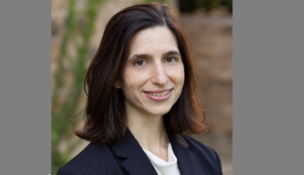Case against two dioceses brings new issues to Supreme Court
By: dmc-admin//November 5, 2007//
Less than three months after ruling that victims sexually molested by Roman Catholic priests could sue the Archdiocese of Milwaukee for fraud, but not negligence, the Wisconsin Supreme Court has accepted another case brought against two dioceses in the state.
In Kenneth V. Hornback v. Archdiocese of Milwaukee, Hornback alleges the dioceses in Madison and Milwaukee covered up a teacher’s history of sexual abuse of nearly two dozen youths in Wisconsin. Hornback was one of five men alleging they were sexually assaulted as children in Louisville when the teacher moved down to Kentucky from Wisconsin.
While the new case draws on aspects of the July ruling in John Doe v. Archdiocese of Milwaukee, there are also different issues involved, according to attorneys on both sides.
Employer and Employee
“It’s a significantly different case, because unlike past cases, it doesn’t involve a priest, rather a lay employee who was a teacher,” said David P. Muth, attorney for the Archdiocese of Milwaukee.
Defendant Gary T. Kazmarek was teaching in the Louisville Archdiocese when he allegedly sexually abused Hornback, Dennis L. Bolton, Ronald W. Kuhl, David W. Schaeffer and Glenn M. Bonn from 1968 to 1973.
Last November, the Wisconsin Court of Appeals upheld a 2005 circuit court decision that a statute of limitations prevented the five men from suing over the sexual abuse allegations against Kazmarek.
Muth, who also served as a defense attorney in the John Doe case, said he anticipated one of the aspects the Supreme Court will examine is the employer-employee relationship in terms of statute of limitations.
Kazmarek had been a teacher in both the Milwaukee and Madison dioceses in the mid-’60s and allegedly sexually abused numerous children, prior to relocating to Louisville. In 2003, he pleaded guilty in Kentucky to sexually abusing the five men and was sentenced to 13 years in prison.
“The plaintiffs are twice removed from the previous employments of Mr. Kazmarek so the key issue is the timeliness for the suit,” said Muth. “What is the relationship of employer and employee with respect to these types of long-tail claims filed decades after all the abuse occurred?”
New Discovery
Another distinction between the two cases is the plaintiffs are only claiming the diocese were negligent in that they should have disclosed Kazmarek’s indiscretions prior to his moving to Kentucky.
In the July ruling, the high court said that only fraud cases could be pursued within a six-year window after discovery, not negligence claims, which are subject to the three-year statute of limitations as of the date of the incident.
“The problem is these plaintiffs haven’t filed a fraud claim,” said Muth. “The only causes of action brought here are negligence, so I’m not sure how those will be interpreted.”
But Wendy G. Gunderson, lead attorney for the plaintiffs, said that unlike the John Doe case, discovery of a Wisconsin connection to the alleged molestations occurred within the required window for a legitimate negligence claim.
Gunderson, who attended oral arguments when the John Doe case was presented to the Supreme Court, said during discovery in the victims’ case in Kentucky, it was found that the defendant had been moved around after allegations of abuse arose.
She argues that the statute of limitation is valid since it has been less than three years since the victims became aware that the diocese in Madison and Milwaukee were aware of Kazmarek’s past.
How that will ultimately be interpreted by the Supreme Court is unknown, but Gunderson noted that since the petition was granted, there should be room for further discussion on the issue.
Muth expected that any decision by the Supreme Court would further clarify what will be held for legal obligations with regards to employees.
“I would think that any ruling could have an impact on any business, not just the church,” said Muth.
On Oct. 22, the Supreme Court announced it had accepted the case; however, oral arguments have not yet been scheduled.
Legal News
- Milwaukee’s Common Council now has the most African Americans, women and openly LGBTQ members ever
- Office of School Safety Provides Behavioral and Threat Assessment Management Training Ahead of 25th Anniversary of Columbine Shooting
- Wisconsin Supreme Court to hear arguments in Democratic governor’s suit against GOP-led Legislature
- Lawsuit asks Wisconsin Supreme Court to strike down governor’s 400-year veto
- Wisconsin man pleads not guilty to neglect in disappearance of boy
- ACS Selects University of Wisconsin Law School’s Miriam Seifter for 2024 Ruth Bader Ginsburg Scholar Award
- People with disabilities sue in Wisconsin over lack of electronic absentee ballots
- Wisconsin Republicans ignore governor’s call to spend $125M to combat ‘forever chemicals’
- Native American voices are finally factoring into energy projects
- Steven Avery prosecutor Ken Kratz admits ‘mistakes were made’
- Colombian national extradited to Milwaukee faces International narcotics-trafficking conspiracy charge
- MPD: Milwaukee homicides down nearly 40 percent compared to last year
WLJ People
- Power 30 Personal Injury Attorneys – Russell Nicolet
- Power 30 Personal Injury Attorneys – Benjamin Nicolet
- Power 30 Personal Injury Attorneys – Dustin T. Woehl
- Power 30 Personal Injury Attorneys – Katherine Metzger
- Power 30 Personal Injury Attorneys – Joseph Ryan
- Power 30 Personal Injury Attorneys – James M. Ryan
- Power 30 Personal Injury Attorneys – Dana Wachs
- Power 30 Personal Injury Attorneys – Mark L. Thomsen
- Power 30 Personal Injury Attorneys – Matthew Lein
- Power 30 Personal Injury Attorneys – Jeffrey A. Pitman
- Power 30 Personal Injury Attorneys – William Pemberton
- Power 30 Personal Injury Attorneys – Howard S. Sicula











